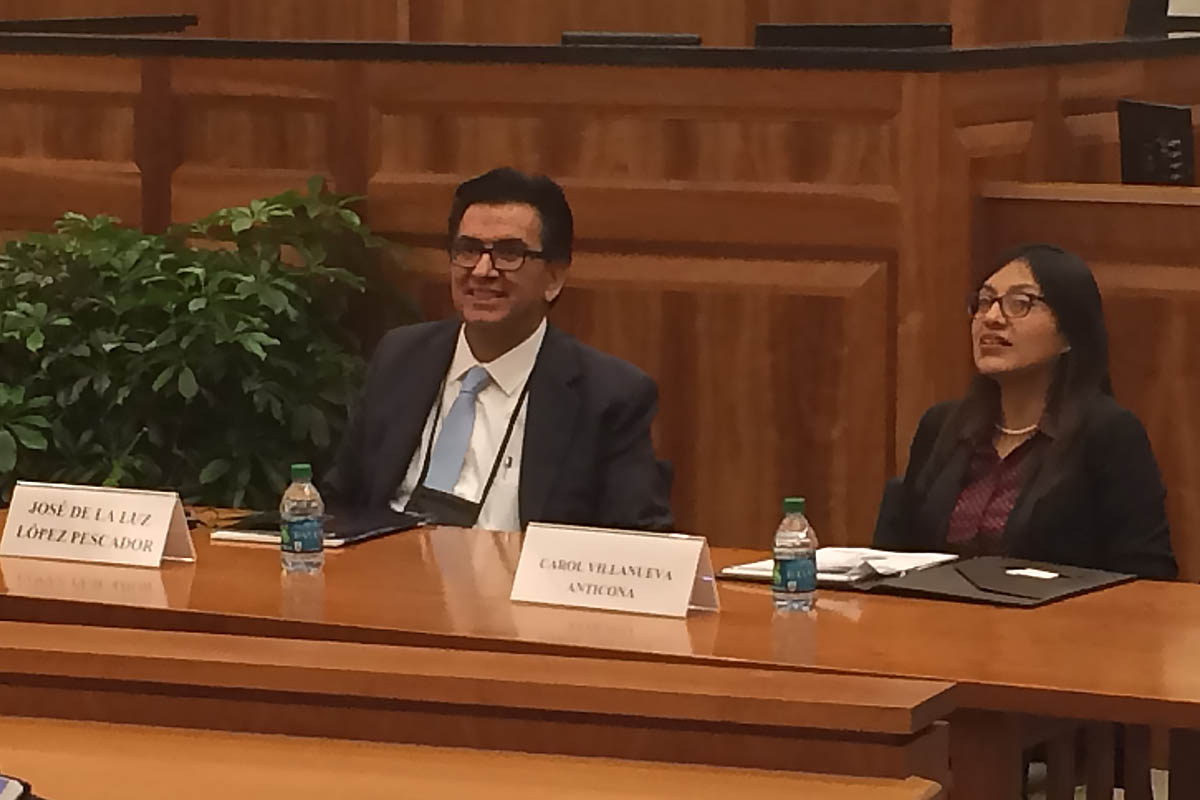Symposium 2015: Argentina, Mexico, and Peru

Reported by Raquel Flores
The Argentina, Mexico and Peru Breakout Session held on Monday, October 5, 2015 was moderated by Craig Galli, International Fellow of the International Center for Law and Religion Studies, and included, Father Julio Raul Méndez, Alfonso Santiago, José de la Luz Lopez Pescador, and Carol Villanueva Anticona as speakers.
Father Julio Raul Méndez, Presbyter Doctor of the Catholic University of Salta, Argentina, and priest of the Archbishopric, was the first to speak. Father Méndez expressed concern about new normative and judicial initiatives that are encroaching on the religious freedom guaranteed by Argentina’s Constitution. One serious problem is a new movement that seeks to remove religious instruction from public schools.
He explained that Argentina’s public schools have always offered religious classes. Recent changes in the curriculum have turned these courses into opportunities for students to learn about religious diversity and tolerance from an early age. But now, an organization is attempting to remove these courses from public schools by challenging them in court, and promoting laws to abolish them. Although the organization has a lot of influence and resources, it represents only a small sector of the population.
In closing, Father Méndez stated that removing these classes would negatively affect the poorer kids, who don’t have the option to attend private religious institutions. He also emphasized that it would diminish efforts to create tolerance for religious diversity in Argentina because it would destroy an opportunity to participate in interreligious studies.
Alfonso Santiago, Director of the School of Policy, Government, and International Relations at Austral University of Argentina, began by stating that in the last years, there have been several laws passed that contradict the ideology of Argentina’s many religious institutions. However, the law is already starting to recognize institutional religious liberty in certain areas, such as health, education, and non-discrimination.
Following global trends, Argentine law is beginning to recognize the right of institutions to follow their own ideology or to exercise the right of a conscientious objector. The reproductive and sexual health laws now say that religious institutions can follow these laws according to their own ideology and exempt themselves from some of the requirements. In addition, a court recently held that it could not force a clinic claiming an exception as a conscientious objector to perform an abortion, when there were other options available. Mr. Santiago concluded by emphasizing the need to continue to form a strong legal base for religious liberty in Argentina.
José de la Luz López Pescador, an attorney from Lopez Pescador & Associates of Mexico, began by relating the success of some religious groups in incorporating a right to life provision into their local constitutions and civil codes. Their success prompted members of the Mexican legislature to introduce bills that would create a secular state and limit the involvement of religious groups in the political process.
Some religious groups have presented a counter proposal: a constitutional amendment to guarantee the right of liberty of conscience, and the right to participate in public acts that express that liberty. These groups argue that instead of creating a secular state, Mexico should focus on creating a democratic state which recognizes religious rights, instead of diminishing them.
Mr. López Pescador concluded by discussing crucial components that any new law addressing religious liberty should have, such as the right to share beliefs, and the right to participate in religiously-motivated lobbying.
Carol Villanueva Anticona, an attorney from Estudio de la Flor, García Montufar, Arata & Asociados of Peru expressed her concern that new Peruvian laws violated individual and institutional religious liberty and autonomy.
She explained that a recent law has made it obligatory for religious organizations to register with the government. Registering allows the religious organization to have access to collective rights such as the ability to represent themselves in court or to create foundations and corporations. It also gives them the ability to enter into covenants of collaboration with the state. However, to register, a religious organization must have at least 10,000 adherents of the religion. Because of this, many new and minority religions have not been able to register, and thus have lost their constitutional collective rights.
Ms. Villanueva Anticona concluded by saying that although Peru has made great steps in promoting religious liberty, it needs to keep working so that these rights can be extended to all religious groups.